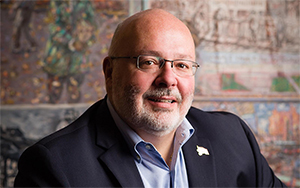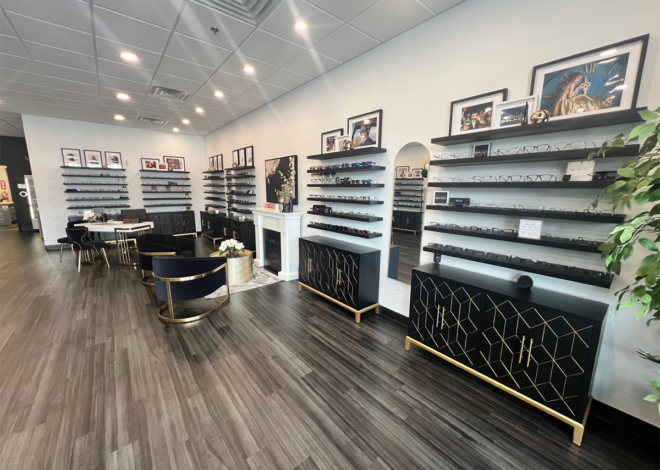August R. Carlino, Rivers of Steel’s founding President and CEO, Announces Retirement
Marketing & Communications
cmccoy@riversofsteel.com | 412.464.4020 ext. 243
HOMESTEAD, PA, February 16, 2024 (PittsburghNewsWire.com) — August R. Carlino, president and chief executive officer of Rivers of Steel Heritage Corporation, announced he will retire in March 2025, after nearly thirty-five years of service. Hired in 1990, Carlino was tasked with forming the coalition that would later become Rivers of Steel, a Homestead-based nonprofit whose transformative work can be seen throughout communities in southwestern Pennsylvania.
Guided by Carlino’s vision and a determination to achieve what many said could not be done, Rivers of Steel has been a pioneer in industrial preservation and heritage tourism, altering perspectives on how post-industrial communities can revitalize and thrive with creative approaches to economic revitalization.
By blending historic preservation and cultural conservation efforts with economic development initiatives, Rivers of Steel champions collaborations throughout the eight-county Rivers of Steel National Heritage Area. It stewards four historical attractions—including three National Historic Landmarks; operates a S.T.E.M. educational riverboat; and works with communities by leveraging its assets to support heritage tourism, creative placemaking, outdoor recreation, and partnerships.
“Reflecting on my time with Rivers of Steel, it has been quite an adventure,” said Carlino. “With our board of directors and incredibly talented staff, we have achieved remarkable milestones, overcome challenges, and continuously pushed the boundaries of what is possible—always challenging what so many said was impossible. The memories I have, the projects accomplished, and the relationships I have forged will forever hold a special place in my heart.”
Rivers of Steel originated in 1990 as the Steel Industry Heritage Task Force, an endeavor launched by the Mon Valley Initiative. By 1992, led by Carlino, a Bloomfield native and graduate of Central Catholic High School and the University of Pittsburgh, the initiative was formalized into a nonprofit organization named the Steel Industry Heritage Corporation. This organization aimed to preserve the region’s rich history and culture while also working toward revitalizing communities that had been severely affected by the decline of the steel industry.
In 1996, the Rivers of Steel National Heritage Area was established through legislation passed by both Congress and the Commonwealth of Pennsylvania. Subsequently, the organization’s name was changed to the Rivers of Steel Heritage Corporation to better reflect its alignment with the National Heritage Area’s name. Capitalizing on his experiences working with former Pittsburgh Congressman Bill Coyne, and then as a lobbyist for Jones Day in Washington, D.C., Carlino led the effort to gain congressional designation to create the National Heritage Area by presenting a vision to “weave together the cultural and historical resources in a way that makes our heritage visible, exciting, and accessible,” and by making the case that “[i]ts timely implementation will have a major impact on the regional economy by promoting tourism and economic development.” Simultaneously, he gained state heritage area designation by the Commonwealth of Pennsylvania. These designations provide annual funding to Rivers of Steel to invest in former industrial communities in southwestern Pennsylvania.
Recognizing that the regional economy of Pittsburgh was changing, Carlino positioned Rivers of Steel to be another regional asset—partnering with governments, developers, and foundations to make industrial preservation an asset to economic revitalization rather than an impediment, as many stakeholders feared. With his background working in Congress and as a lobbyist, Carlino positioned Rivers of Steel on the radar of state- and federal-elected officials in Harrisburg and Washington, D.C., connecting with them to identify state and federal funding programs and legislation that, through the National Heritage Area designation, could benefit Pittsburgh and southwestern Pennsylvania.
Senator Jay Costa acknowledged Carlino’s efforts. “I extend my sincerest congratulations and best wishes to Augie with retirement, and thank him for his unwavering dedication and commitment to the communities of southwestern Pennsylvania and the 43rd Senatorial District as the president and CEO of Rivers of Steel National and State Heritage Area. His efforts to save Carrie Furnaces and work with me to advance its preservation and development will be a lasting tribute to all those who worked in the mills. If I didn’t see Augie somewhere in the Steel Valley, I would see him in Harrisburg as he worked with me and my colleagues in the Senate to advance the projects that would benefit the communities in the region. I am immensely grateful for his leadership and wish him the very best in his well-deserved retirement.”
Since 1990, Rivers of Steel has secured more than $28 million in federal funds that have been invested in the region. Furthermore, according to Rivers of Steel’s most recent economic impact study by the Hill Group, the annual average of direct, indirect, and induced economic impact estimates a $92 million return on the annual investment of $664,000 by the National Park Service through the National Heritage Area program and an average investment of $200,000 by the Pennsylvania Department of Conservation and Natural Resources through the Heritage Parks Program. The result is more than a one hundred-fold return on investment in terms of ultimate economic benefit for the eight-county region.
Mike Doyle, former U.S. representative for Pennsylvania’s 18th congressional district, reflected on his collaborations with Carlino. “I have the pleasure of knowing Augie Carlino for more than thirty years. During my time in Congress, I worked with Augie, who was a tireless advocate for securing federal authorization for Rivers of Steel National Heritage Area, advancing the designations of the Carrie Furnaces and the Bost Building as National Historic Landmarks, and saving the Carrie Furnaces, where my grandfather worked for more than forty years. None of this would have happened without Augie’s dogged determination to make it a reality. I am proud to call Augie my friend and thank him for his contributions to the revitalization of Pittsburgh and the Mon Valley.”
One of Rivers of Steel’s earliest goals was to save the former U.S. Steel Carrie Furnaces from demolition with the intention to repurpose them as a historical attraction and revitalize the area. After facing more than a decade of obstacles, Rivers of Steel, in collaboration with Allegheny County, finally acquired access to the property in 2010 and began to work on stabilizing and restoring the furnaces and surrounding structures. Since then, the organization has been working to preserve and interpret the site for locals and tourists to the region. Today, the Carrie Blast Furnaces are a National Historic Landmark—the highest level of historic designation for property in the United States—and have become a preeminent historical attraction in southwestern Pennsylvania, hosting tens of thousands of visitors each year through tours, performances, arts workshops and exhibitions, and an array of events.
“I’ve known known Augie for many years, and I am thankful for his leadership,” said Rich Fitzgerald, executive director of the Southwestern Pennsylvania Commission and former Allegheny County executive. “As County Executive, I spent a lot of time with Augie as he led the redevelopment of the Carrie Blast Furnaces in Rankin and helped to revitalize our steel and coal communities that needed support as the industries shifted. His steadfast commitment to preserving our region’s heritage while simultaneously working to propel us forward will forever be a part of our region’s legacy.”
Former board chair, Frank Reed, recalled his experience working with Augie during a period of dramatic growth, from the organization’s early success helping to facilitate the completion of the Great Allegheny Passage to later triumphs, including the development of a receptive tour program that services visiting motor coach groups and the acquisition of the Explorer riverboat and its S.T.E.M. programs.
Frank noted that Augie demonstrated a remarkable blend of prudence and opportunism in leading Rivers of Steel, particularly in the mid-2000s. “During the recession when numerous nonprofits faced challenges, I remember Augie collaborating with the board and staff to navigate wisely, safeguarding the organization while also seizing opportunities to expand Rivers of Steel’s impact. Augie’s approach involved strategically creating new revenue streams that not only sustained operations but now also play a crucial role in the organization’s financial stability. His guiding philosophy has always been to operate Rivers of Steel with a business mindset, seeking avenues for revenue generation while staying true to our nonprofit mission.”
Frank continued, “Augie’s initiative to acquire RiverQuest and its riverboat Explorer was a complement to Rivers of Steel’s existing programs, and it served to further the region and tourists by offering popular sightseeing tours, but this action also acted as a catalyst for significant expansion of the organization’s capacity to grow its arts programming, festivals, and events. Without Augie’s leadership and vision, none of these things would have happened.”
Under Carlino’s tenure, Rivers of Steel’s efforts have contributed to many projects in the revitalization of Pittsburgh, now a city frequently lauded for its “most livable” status, its nationally recognized trails, and its ability to adapt while still embracing its steel legacy. Carlino’s vision for Rivers of Steel was to focus on all of southwestern Pennsylvania and the smaller steel and coal communities that were integral to the larger steel operations in and just outside of Pittsburgh. Many communities in the Monongahela River Valley and beyond still struggle to rebound after the collapse of Big Steel. The commitment to support these places—a passion for Carlino and the Rivers of Steel staff—has resulted in initiatives in recent years to address communities that otherwise would be left behind.
“The Benedum Foundation has partnered with Augie Carlino for a long time because a workhorse with his intellect and persistence doesn’t come along very often,” said Jen Giovannitti, president of the Claude Worthington Benedum Foundation. “Augie’s dedication to serving communities being left behind is why the Benedum Foundation views the Rivers of Steel—its people, economy, and industrial history—as essential to the future of the Mon Valley. The Rivers of Steel concept elevated a regional vision for philanthropy, Congress, state leaders, the Appalachian Regional Commission, and so many others to invest in.”
Rivers of Steel’s board of directions has responded to Carlino’s announcement by assembling a transition committee and will soon begin the search for his replacement.
“While it’s hard to conceive Rivers of Steel without Augie, we are thankful to have a full year to plan for his departure and hire a new CEO,” said Dick Wallace, board chair for Rivers of Steel. “Organizationally, he’s leaving on a high note, having built a committed board and staff that shares his passion and vision for supporting communities throughout southwestern Pennsylvania. That said, our plans for the coming years are ambitious; Augie’s work is not done, yet!”
“Rivers of Steel exists today because Augie understood the importance of the culture of Western Pennsylvania, its celebrated industrial heritage, and how commemorating that legacy could be a platform for revitalizing communities,” said David K. Roger, president of The Hillman Foundation. “At the core of his vision has been a commitment to people—to find a way to elevate and direct their pride in the past to create opportunities for the future.”
About Rivers of Steel
Founded on the principles of heritage development, community partnership, and a reverence for the region’s natural and shared resources, Rivers of Steel strengthens the economic and cultural fabric of western Pennsylvania by fostering dynamic initiatives and transformative experiences.
Rivers of Steel showcases the artistry and innovation of our region’s industrial and cultural heritage through its historical and twenty first-century attractions?offering unique experiences via tours, workshops, exhibitions, festivals, and more. Behind the scenes, Rivers of Steel supports economic revitalization—working at the grassroots level to deepen community partnerships, promote heritage tourism, and preserve local recreational and cultural resources for future generations.
Contact Carly McCoy at 412.464.4020 ext. 243, or cmccoy@riversofsteel.com.
Rivers of Steel | The Bost Building, 623 East Eighth Avenue, Homestead, PA 15120
riversofsteel.com




